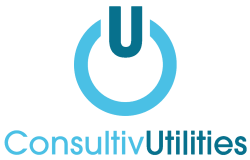
Understanding energy regulations will help you meet green guidelines
The UK is on a mission to improve its green credentials and become a net zero country, and organisations across all industries are being asked to contribute by adhering to the latest sustainability energy regulations.
Enterprises are required to demonstrate their commitment to green energy use, or else face potentially irreparable reputational or financial damage. There are various schemes in place to help control business carbon emissions. By getting familiar with them it can help you stick to regulations and enjoy greater energy efficiency in your business.
With that in mind, here are some of the schemes you should get to know in order to stay on top of your organisation’s requirements.
ESOS: Energy Savings Opportunity Scheme
ESOS is a mandatory energy assessment scheme for UK businesses that meet the qualification criteria, which is:
- You have over 250 members of staff, or
- A turnover of over 50 million Euros (£44.1 million) or an annual balance sheet of over 43 million Euros (£37.9 million)
- You are an overseas organisation with more than 250 employees in the UK
- Your company is part of a larger organisation which falls into any of the above
With the third phase of the ESOS currently underway, businesses that meet the criteria must now take action. This means getting familiar with the scheme and how it can fit with your wider energy and net zero strategy.
CCL (Climate Change Levy) and CCA (Climate Change Agreements)
The Climate Change Levy is an environmental tax charged on the energy use by businesses. It applies to businesses in the industrial, public services, commercial and agricultural sectors, and has to be paid either at the main rate or carbon price support rate.
Meanwhile, CCAs are voluntary agreements that provide eligible energy intensive sectors with the chance to receive a reduction of up to 90% on Climate Change Levy (CCL). In order to , businesses must commit to pre-determined energy efficiency targets.
SECR: Streamlined Energy and Carbon Reporting
Like ESOS, SECR is a mandatory requirement. Consequently it applies to around 12,000 organisations in the UK, and is designed to increase awareness surrounding energy costs and provide clear data to improve sustainability throughout the UK. Furthermore, SECR forms an essential part of corporate net zero strategies.
SECR applies to all quoted companies, large limited liability partnerships and large UK incorporated unquoted companies, although organisations using less than 40,000 kWh per annum are not required to report. The criteria for businesses are similar to that of ESOS users:
- 250+ employees
- Turnover of £36 million+
- Balance sheet of £18 million+
Energy certification – DEC and EPC
Energy Performance Certificates (EPCs) and Display Energy Certificates (DECs) are required for all buildings, from domestic homes to office buildings. They let residents know how efficient the premises is and, for businesses, this can either contribute to or subtract from the organisation’s overall carbon footprint.
Completing an energy audit of your workplace can let you know how much your location is holding you back in terms of your sustainability goals.
Stay up to date on what’s required of your business.
Consultiv Utilities can help you stay on top of energy regulations
With green regulations in place and prices on the rise, it’s important to pay attention to your utility spending. Although, meeting environmental guidelines can feel like a mammoth task, and it’s easy to feel overwhelmed. That’s where Consultiv Utilities is able to lend a hand. We can help you meet your utility goals and stand you in better stead.
From gas and electricity to water and waste, our experts can get to know your business and make recommendations that are tailored to meet your green requirements, helping to cut costs and achieve your sustainability goals.
Are you ready to improve your energy outlook? Get in touch with the team at Consultiv Utilities today.
Categories:
